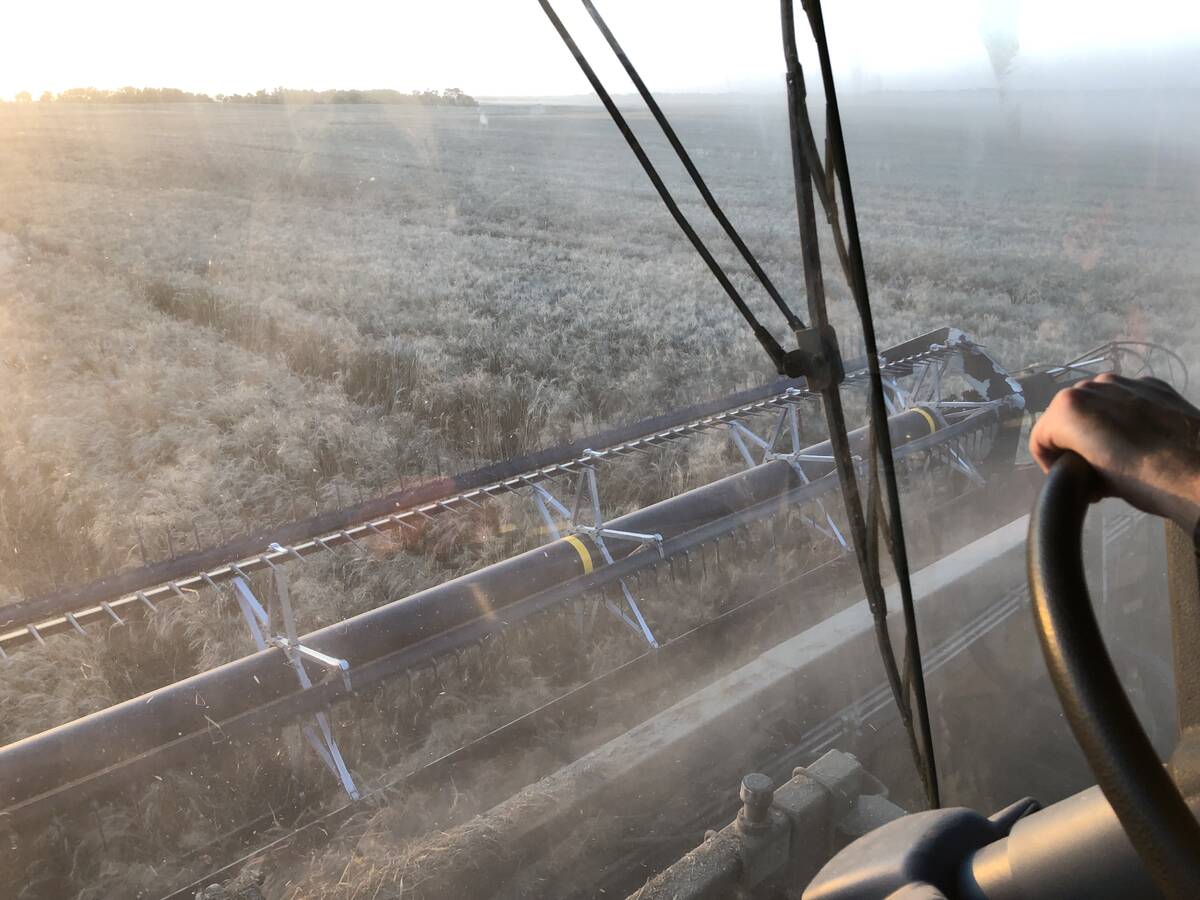WINNIPEG — There are agricultural statistics that grab your attention and other stats that grab you by the throat. The annual crop loss in India falls into the throat category.
“The minister of agriculture of India claims they lose 22 percent of everything they crop. So they grow 400 million tonnes of crop every year and they lose 88 million tonnes through rot, contamination and animals,” said Colin Osborne, president of Vicwest, which owns Westeel grain bins.
“To put that in perspective, Canada only grows about 72 million (tonnes per year).”
Read Also

Mail strike disrupts grain sample delivery
The Canadian Grain Commission has asked farmers to consider delivering harvest samples directly to CGC offices, services centres or approved drop offs as Canada Post strike delays mail.
The shocking statistic is one reason why Westeel decided several years ago to market its steel storage bins around the globe, Osborne said during a speech at a business networking conference in Winnipeg in mid-October.
Westeel, which sells 8,000 grain silos per year and has 60 percent market share in Canada, could have focused solely on the North American market for years to come.
However, company leaders concluded the firm couldn’t pass up the incredible opportunities outside of North America.
“If you went to Russia, you wouldn’t see bag storage (of grain), but you would see storage on the ground or under a metal roof. So, they have crop losses of 10 to 15 percent,” he said.
“In Canada crop losses are one percent or less.”
After jumping into the global marketplace, Westeel managers quickly identified certain countries where they could establish a foothold, including France, Germany, Ukraine, Kazakhstan and Russia.
In France, for instance, Westeel learned that metal storage wasn’t commonly practiced and farmers have sufficient land and resources to invest in superior grain storage.
“(In France), there was a lot of on-ground storage and a lot of square building storage,” Osborne said.
“There are many farms that are 100 hectares (250 acres) and there are agribusiness people that operate large farm co-ops.”
In Kazakhstan and Russia, individual farmers don’t have the money to buy out their neighbours and expand their farms, Osborne said. However, agribusiness firms and private equity companies are buying out landowners and establishing large scale farms, so those companies will spend money on steel grain bins.
North Africa and the Middle East might become a massive market for Westeel in the future, Osborne said. Millers and grain processors need high volume bins to store local and imported grain to hedge against price volatility.
Vicwest had multiple orders in North Africa before the Arab Spring destabilized the region.
“Algeria, Nigeria, Morocco, Iran … we’re trying to build up agriculture storage infrastructure. Then, of course, the world kind of fell apart,” Osborne said in an interview following his speech.
“Most of North Africa and parts of the Middle East will be fantastic markets when they settle down (politically).”
Osborne said crop losses will likely remain a quandary in India for many years because a typical farm is less than eight acres and farmers barely have enough cash to survive.
However, the world is short of food and many countries suffer grain losses of 10, 15 or 20 percent, so Osborne thinks governments and global aid organizations will eventually make food storage a priority.
“I think there will be a time when governments step up … to fund it because it is the low hanging fruit,” he said.
“The UN did a study in Afghanistan before the war broke out. They put tiny little silos on donkeys and took them out to the farm community. They improved crop yield by 15 percent.”
Vicwest may be pursuing global opportunities, but the firm isn’t ignoring its roots, Osborne said.
In September, the company signed a deal with the FWS Group, a Winnipeg designer and builder of residential and commercial properties, to construct Westeel storage systems in Western Canada.
Randy Roller, FWS vice-president and general manager, said the partnership will help his company in the post-CWB era.
“With the recent changes in Canadian grain marketing, we believe there will be a significant shift to how grain will be stored and handled throughout Western Canada,” Roller said.
“By offering a premier steel storage option to our concrete slipform designs, we will increase the ability to meet our clients ever changing requirements.”
- Vicwest describes itself as a manufacturer of exterior building products, including metal roofing, siding, decking, insulated metal panels and architectural panels
- Vicwest operates 18 manufacturing plants and employs 1,200 people
- It is among the top five largest grain storage companies in the world. GSI and Brock of the United States are No. 1 and 2 in the world. Kepler Weber of Brazil and Symaga of Spain are similar in size
- Its products are sold in 30 countries
- Company revenues in 2011 were $417 million
- Westeel is a division of Vicwest

















